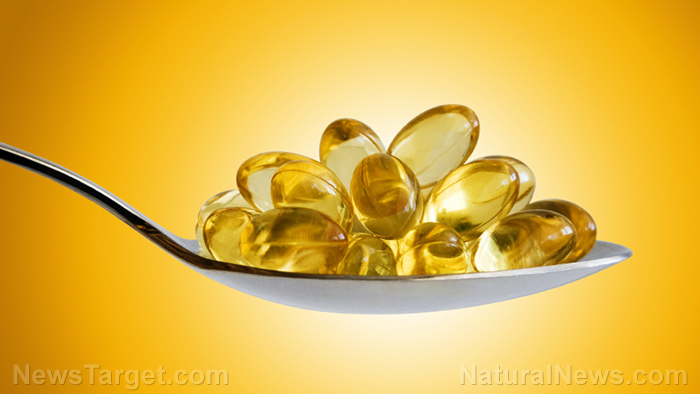Study suggests an increase in DHA omega-3 intake can help lower the risk of aortic calcification among men
01/02/2020 / By Edsel Cook

Calcification of any blood vessel is dangerous, but it’s especially bad if the condition affects the aorta, the body’s primary artery. Fortunately, a new study suggests taking omega-3 fatty acids to help reduce the severity of aortic calcification in men.
An international team of researchers covered nearly 1,000 men in the United States and Japan. They learned that every two percent improvement in DHA levels reduced aortic calcification by 35 percent. Of the omega-3s covered by the study, docosahexaenoic acid (DHA) appeared to drive the improvement in aortic health.
The team found no significant relationship between the intake of another omega-3 fatty acid — EPA (eicosapentaenoic acid) — and aortic calcification. Only DHA appeared to possess anti-atherosclerotic effects that protected the aorta from the calcification process. Their findings supported the existing evidence regarding the ability of DHA and other omega-3 fatty acids to fight atherosclerosis in healthy middle-aged men.
In recent years, more and more fish oil supplements with omega-3 fatty acids are entering the commercial market. The increasing consumption of such health supplements drives researchers to learn more about the effects and health benefits of omega-3 intake. (Related: Get to know the benefits of heart-healthy omega-3s.)
The omega-3 fatty acid DHA helps reduce aortic calcification
In their experiment, the team investigated the omega-3 fatty acid levels and aortic calcification in 688 American and 310 Japanese participants. All participants were male – the American participants lived either in Pittsburgh or Honolulu, while the Japanese participants lived in Shiga, Japan.
The evaluation showed that almost 57 percent of the participants experienced varying degrees of aortic calcification. Further, lower calcification scores appeared linked to omega-3 levels in general and DHA concentrations in particular.
The researchers surmised that the omega-3 fatty acids achieved their beneficial effects on aortic calcification by fighting inflammation.
Omega-3s possess significant anti-inflammatory activity. They often get taken as health supplements to reduce the harmful effects of inflammation-related diseases like arthritis and depression.
“To our knowledge, this is the first community-based study examining the relationship between blood biomarkers of LCn-3PUFAs [long-chain n-3 polyunsaturated fatty acids] and aortic calcification in asymptomatic middle-aged men across different races/ethnicities from two countries in a standardized manner,” explained the researchers.
Omega-3 fatty acids are good for health, but one may be better for certain conditions
Global Organization for EPA and DHA Omega-3s researcher Harry Rice reviewed the findings of the multi-national study. He noted the inverse association between omega-3 fatty acid concentrations and aortic calcification only applied to DHA.
Experts argue over which fatty acid achieves the best effects in supporting cardiovascular health or treating a specific cardiovascular disease. A rising number of studies are fleshing out how fatty acids like DHA and EPA exert different effects on health.
The recent study showed that a fatty acid might improve a health condition while a related fatty acid did not achieve any effects. The reverse may prove true for other conditions.
In general, both DHA and EPA exert positive effects on the cardiovascular system. So, while researchers determine which one is best for a specific health condition, taking both omega-3 fatty acids will more likely than not benefit a person.
“[The] report from the Centers for Disease Control and Prevention that heart disease deaths are on the rise means that we need to be more diligent about taking care of ourselves,” said Rice.
“While it’s just one piece of the puzzle, everyone needs to be eating fatty fish and/or taking an EPA/DHA-rich supplement.”
Sources include:
Tagged Under: anti-atherosclerosis, arterial calcification, atherosclerosis, cardiovascular health, DHA benefits, DHA intake, health supplements, omega-3 fatty acids
RECENT NEWS & ARTICLES
COPYRIGHT © 2017 NATURAL CURES NEWS



















